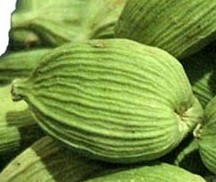
u grow culinary herbs you probably relish the idea of having fresh seasonings for as you cook. There is nothing like fresh basil with mozzarella and tomatoes or fresh cilantro for Thai chicken with peanut sauce The difference in flavor between fresh and dried basil or cilantro is significant but is the difference always bad? Sometimes, but not always.
Drying herbs and spices has a long history and probably began as a way of saving them for times when they were out of season. But that is only one of the reasons to dry them. Some herbs and spices change flavor as they dry and the change actually makes them more desirable. During the drying process enzymatic reactions occur that produce the unique flavor we seek in them. For example, cardamon; the fresh pods have almost no aroma but after days of drying they develop the pungent aroma and flavor that is so desirable in curries and garam masala.
Another reason for drying is the concentration of essential oils that give an herb its flavor. Drying removes the water content resulting in a more strongly tasting herb. As a result, recipes usually indicate whether the herb is dried or fresh. In general, one tablespoon of fresh herb is equivalent to 1/4 to 1/3 tablespoon dried.
Dried herbs combine with other foods differently than fresh ones do. If you are cooking a stew or soup the dried herb will combine with the other ingredients easily an supply the desired flavor more readily. If you are preparing a salad, on the other hand, fresh herbs will often have fleeting initial aromas and flavors that dried herbs can’t supply.